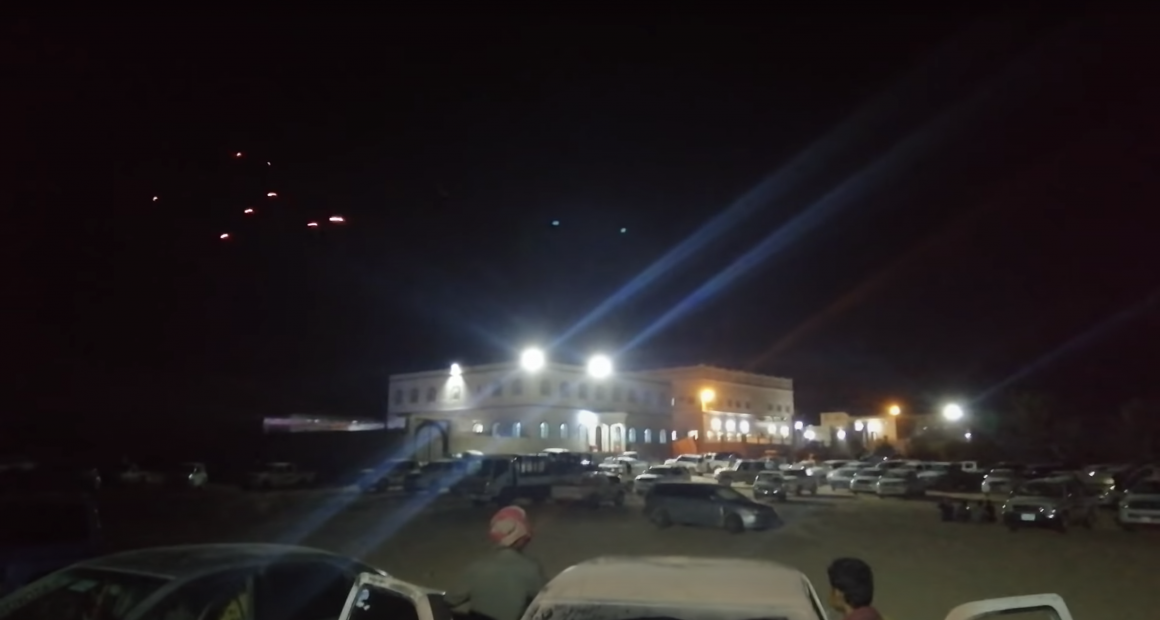Qatar has been a target of a number of sinister online manipulation campaigns aimed to spark political instability in the country.
A video of armed men firing machine guns in the sky has sparked widespread controversy on social media after ‘suspicious’ accounts falsely claimed it was filmed in Qatar during a protest against the upcoming Shura Council election.
https://twitter.com/Potwycouncil/status/1424841243536748556
The video was posted on Twitter by an account under the name “World Council for Youth (مجلس الشباب العالمي)” which claims to be a “non-governmental council that does not belong to any organisation” and is personally funded.
The tweet read that the gunmen in the video are from “tribes” gathering to attack the Amiri Diwan in Doha, accusing Al Jazeera of burying the event by refusing to report the incident. The tweet also claimed that Qatar’s amir “disappeared”, in yet another dubious attempt to spread misinformation in the Gulf state.
“#Qatar_Revolts #BREAKING: Heavy gunfire as tribes gather to attack the Amiri Diwan and brotherhood channel, Al Jazeera is burying the event. The Amir has disappeared,” the tweet read.
The video – filmed a night – shows a hazy image of a lit building that is considerably smaller than the Amiri Diwan in Doha, while surrounded by heavy gunfire and dozens of cars. Men that appear in the video are clearly wearing T-shirts, not the white robes that is donned by Qatari men. One of the characters seen in the video is also clearly chewing Qat – a stimulant that is traditionally used by Yemenis and is banned in Qatar itself.
Shortly after it emerged under the hashtag, an AFP fact-checking service confirmed the video was filmed at a wedding in the Henin Valley area, located in Hadramout in Yemen, which was posted on YouTube in February 2020.
Despite heavy backlash from social media users, the account has yet to delete the fake video, but rather retweeted it hours later in what seemed like an attempt to further spark provocation.
The same account has also been sharing a number of fabricated information using several anti-Qatar hashtags to amplify fake news.
The manipulation of Qatar’s public opinion
Qatar is no stranger to sinister online manipulation campaigns and propaganda.
In recent months, several anti-Qatar hashtags have trended in Qatar as the Gulf nation edges closer to its first historic Shura Council elections in October.
New data analysis obtained by Doha News revealed how hashtags have involved thousands of dubious accounts and suspected bots designed to disseminate and amplify information critical of the Gulf state.
The data, which examines nearly 100,000 tweets, identified several highly active users that produced thousands of tweets featuring specific hashtags in an unusual period of time, all of which attempt to promote alleged public dissatisfaction towards Qatar’s government.
Among the most recent of hashtags is “#Qatar_Revolts” which attempts to exaggerate small-scale demonstrations launched by a tribe protesting against the “exclusion” of Qataris deemed ineligible to vote, as per current law.
Investigation: The clandestine operation to manipulate Qatar’s public opinion
The hashtag is carried and amplified by two particular hacked but verified accounts – one belonging to ABC News producer Joel Zander and the other Indian linked to entrepreneur Ishita Anand. While both personas are not known to engage in such internal Qatari politics, their tweets were retweeted by hundreds of other fake accounts.
In the same month, #The_People_Boycott_Shura_Elections was a number one trending topic that surfaced on Sunday 1 August, coinciding with the first day that voters in Qatar could register for the October elections.
Read also: Nationality debate sparks ahead of Qatar’s Shura Council elections
While hashtags trend on Twitter if they are used by thousands of social media users, or if sponsored by a particular company, or if Twitter itself – whose MENA office is based in the United Arab Emirates – pushes it to the forefront, this particular hashtag reached to the top of the list despite only being used in one tweet.
